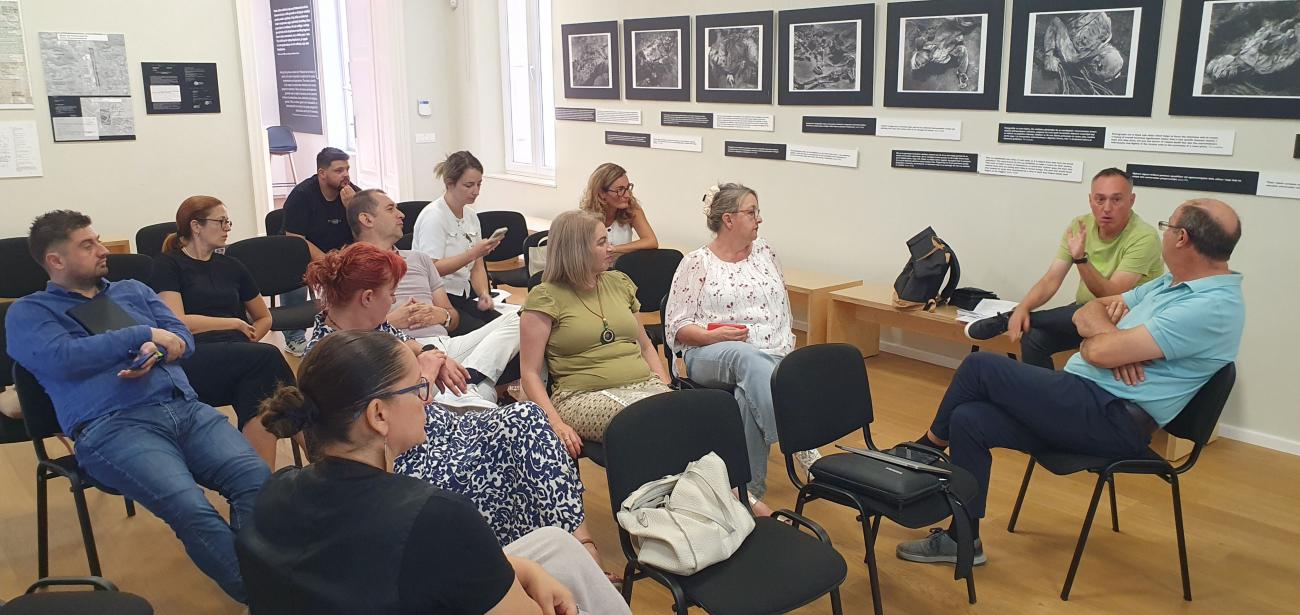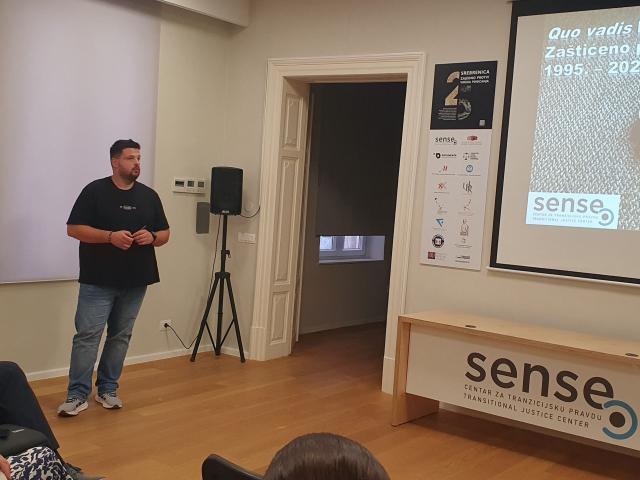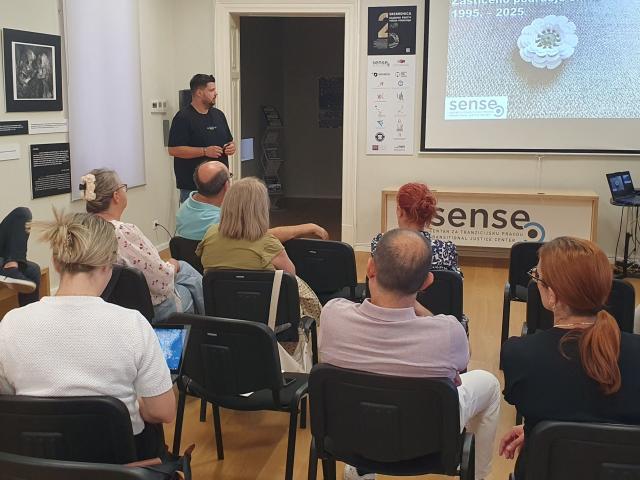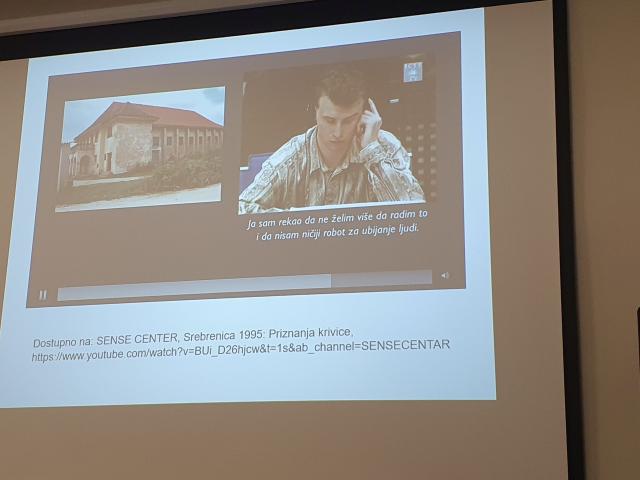Critical reflection on the wars of the 1990s continued at the SENSE Center with a seminar for history teachers, where participants examined teaching methods for responsibly and critically addressing complex topics in contemporary history—such as the experiences of soldiers and the impact of wartime propaganda.
Earlier this year, as part of the Disarming History series of teacher meetings, participants took part in a webinar that explored these themes. At the September seminar, they had the opportunity to present concrete lesson plans that apply methods for working with reliable sources and specific examples from the SENSE archive.
Reliable sources are essential for an objective understanding of events from the recent past, emphasized Mina Vidaković of the SENSE Center and Igor Jovanović of the Croatian History Teachers’ Association. They underscored the importance of developing a critical approach in history education. The program also addressed the role of media and political rhetoric in fueling conflict, the psychological consequences of war trauma, and the potential of testimonies and documentary materials to foster empathy and understanding among students.
Propaganda and Incitement to War Crimes
Emina Musić opened the seminar with a presentation on a lesson plan examining the political and media use of hate speech and manipulation (only in BSC languages). Using examples from the SENSE archive, she demonstrated how leaders encouraged violence within their societies. Duško Rakić followed with documented examples from court verdicts to show how the topic of public incitement to war crimes—which contributes to the escalation of conflict—can be effectively taught.
Teachers Ljupka Hristova and Irena Mladenovska presented a lesson titled Propaganda in War, designed for high school students and intended to encourage them to analyze wartime posters, newspaper articles, and television reports from the period. Merima Jašarević concluded this block with a presentation on the significance of oral history in education (only in BSC languages), emphasizing how personal testimonies help illuminate subjective experiences and develop empathy among young people.
The Position of Soldiers in War
In their presentation The Soldier in War, Valentina Jovanović and Mire Mladenovski shared biographical stories and documentary sources that shed light on the everyday lives of ordinary soldiers—their dilemmas, fears, and the consequences of warfare. Speaking on behalf of Vladica Tošić, Jovana Pavlović discussed the psychological and social aspects of war trauma and the importance of addressing these themes in an interdisciplinary manner—through history, sociology, and ethics.
Archival Materials and Practical Examples
Drawing on examples from the SENSE Center archive, Arijana Ibričić spoke about the role of UN soldiers in Srebrenica, analyzing authentic footage and testimonies that illustrate the complexity of their position during the events of July 1995.
In the final presentation, Quo Vadis Ratko? Protected Area of Death 1995–2025, Josip Lučić reflected on the long-term consequences of propaganda and the ways in which narratives shape collective memory and a society’s responsibility toward its past.
The seminar concluded with participants and organizers affirming that such gatherings make an important contribution to the professional development of teachers and to strengthening regional cooperation. They emphasized in particular that working with archival materials from the SENSE Center helps teachers encourage students to think critically and cultivate a responsible relationship with historical facts.
The series of seminars and webinars for history teachers from across the region, organized with the support of the American organization National Endowment for Democracy (NED), will continue next year.




